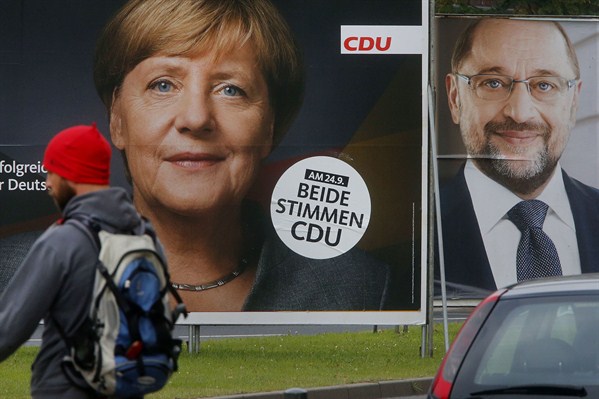BERLIN—For weeks, Germany’s upcoming federal election has seemed like something of an anti-climax. Chancellor Angela Merkel, content to run a retrospective campaign based on her 12 years in power, appears set to cruise to another four-year term. Her center-right party’s traditional opponents on the left have found little traction in their criticism of Merkel’s record, in large part because they have spent the past four years in a governing coalition with her. Potentially divisive issues looming on the horizon have gone unaddressed.
This unusual harmony may mask future problems for Merkel and Germany after the voting on Sunday. Merkel and her Christian Democratic Union (CDU) have not been pushed to articulate detailed positions on issues like the future of Germany’s economy, including growing inequality, or the German role on the international stage. The anti-climactic campaign has also crowded out disaffected voters, who are frustrated with the country’s current trajectory.
Many now appear to be finding a home in the far-right, nationalist Alternative for Germany (AfD). The ardently anti-immigrant party looks set to cross the electoral threshold necessary to gain seats in the German parliament—the first time a far-right party has entered the Bundestag in the postwar era.

